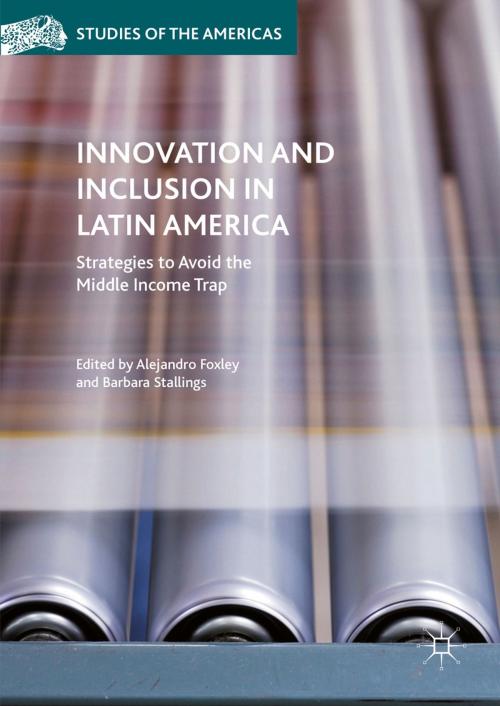Innovation and Inclusion in Latin America
Strategies to Avoid the Middle Income Trap
Nonfiction, Social & Cultural Studies, Political Science, Politics, Economic Conditions, International| Author: | ISBN: | 9781137596826 | |
| Publisher: | Palgrave Macmillan US | Publication: | June 6, 2016 |
| Imprint: | Palgrave Macmillan | Language: | English |
| Author: | |
| ISBN: | 9781137596826 |
| Publisher: | Palgrave Macmillan US |
| Publication: | June 6, 2016 |
| Imprint: | Palgrave Macmillan |
| Language: | English |
This book argues that Latin America must confront two main challenges: greater innovation to increase productivity, and greater inclusion to incorporate more of the population into the benefits of economic growth. These two tasks are interrelated, and both require greater institutional capacity to facilitate both innovation and inclusion. Most countries in Latin America are struggling to escape what economists label “the middle income trap.” While much if not all of the region has emerged from low income status, neither growth nor productivity has increased sufficiently to enable Latin America to narrow the gap separating it from the world’s most developed economies. Although income inequality has diminished across much of the region in recent years, social vulnerability remains widespread and institutional weaknesses continue to plague efforts to achieve equitable development. This volume identifies lessons that can be learned and adapted from experiences within the region and in East Asia, where the middle income trap has largely been avoided.
This book is the result of a collaborative project undertaken by American University’s Center for Latin American & Latino Studies (CLALS) and the Corporation for Latin American Studies (CIEPLAN) in Chile, with financial support from the Inter-American Development Bank’s Office of Strategic Planning and Development Effectiveness.
This book argues that Latin America must confront two main challenges: greater innovation to increase productivity, and greater inclusion to incorporate more of the population into the benefits of economic growth. These two tasks are interrelated, and both require greater institutional capacity to facilitate both innovation and inclusion. Most countries in Latin America are struggling to escape what economists label “the middle income trap.” While much if not all of the region has emerged from low income status, neither growth nor productivity has increased sufficiently to enable Latin America to narrow the gap separating it from the world’s most developed economies. Although income inequality has diminished across much of the region in recent years, social vulnerability remains widespread and institutional weaknesses continue to plague efforts to achieve equitable development. This volume identifies lessons that can be learned and adapted from experiences within the region and in East Asia, where the middle income trap has largely been avoided.
This book is the result of a collaborative project undertaken by American University’s Center for Latin American & Latino Studies (CLALS) and the Corporation for Latin American Studies (CIEPLAN) in Chile, with financial support from the Inter-American Development Bank’s Office of Strategic Planning and Development Effectiveness.















